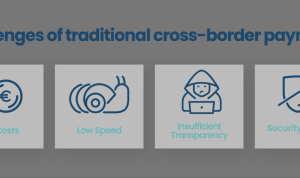The Pros and Cons of Using Online Payment Platforms open up a world of convenience and efficiency in today’s digital age. As more consumers shift towards online shopping and businesses adapt to this trend, understanding the benefits and drawbacks of these payment systems becomes crucial. This overview offers a glimpse into how these platforms can streamline transactions while raising concerns about security and fees.
With the rise of cashless transactions, online payment platforms have revolutionized the way we conduct business, offering unparalleled speed and accessibility. However, navigating the landscape of these services requires careful consideration of various factors, from user experience to the potential risks associated with online transactions.
In recent years, the dynamic landscape of digital marketing has transformed the way businesses engage with their customers. As we delve into the intricacies of this ever-evolving field, it’s essential to understand the fundamental components that contribute to a successful digital marketing strategy. This article aims to provide a comprehensive overview of various aspects of digital marketing, including its key components, strategic implementation, and future trends.To begin with, it’s important to define what digital marketing is.
Digital marketing encompasses all marketing efforts that utilize the internet or an electronic device. Through various online channels, businesses are able to connect with current and prospective customers in ways that were not possible before the advent of the digital age. This includes a variety of platforms such as social media, email, websites, and search engines, each playing a crucial role in reaching a target audience.One of the core components of digital marketing is Search Engine Optimization ().
is the practice of optimizing a website to rank higher in search engine results pages (SERPs), thereby increasing organic traffic. It involves a range of techniques, from research and content creation to technical improvements and link building. Effective not only enhances visibility but also builds credibility and trust with users. As search engines evolve, understanding the latest algorithms and best practices becomes crucial for businesses aiming to maintain their online presence.Another significant element of digital marketing is content marketing.
This strategy focuses on creating valuable and relevant content to attract and engage a clearly defined audience. Content can take many forms, including blog posts, videos, infographics, and podcasts. The goal of content marketing is to provide audiences with information that resonates with them, ultimately guiding them through the buyer’s journey. A well-executed content marketing strategy not only drives traffic but also fosters brand loyalty, as consumers come to view the brand as a credible resource in its industry.Social media marketing is yet another vital aspect of digital marketing.
With billions of users actively engaging on platforms like Facebook, Instagram, Twitter, and LinkedIn, businesses have unprecedented access to potential customers. Social media marketing involves creating and sharing content to achieve marketing and branding goals. This includes posting updates, engaging with followers, and running targeted ad campaigns. Engaging with users on social media helps to humanize a brand, making it more relatable and trustworthy.
Moreover, social media provides valuable insights into consumer behavior, allowing businesses to tailor their strategies accordingly.Email marketing remains one of the most effective forms of digital marketing, despite the rise of newer channels. It involves sending targeted messages to a group of people via email, often aiming to nurture leads or promote products and services. An effective email marketing campaign is built around a well-segmented list of subscribers and personalized content that speaks directly to the recipient’s interests.
By providing value through informative newsletters, exclusive offers, or product updates, businesses can enhance customer relationships and drive conversions.Pay-Per-Click (PPC) advertising is another powerful tool in the digital marketing arsenal. PPC allows businesses to place ads on search engines and social media platforms, paying only when a user clicks on their ad. This model provides immediate visibility and can be highly effective in driving traffic and generating leads.

By carefully selecting s and targeting specific demographics, businesses can create campaigns that yield a high return on investment. However, effective PPC management requires continuous monitoring and optimization to maximize results.In addition to these components, the importance of analytics in digital marketing cannot be overstated. Data analytics tools enable businesses to track and analyze their marketing efforts, providing insights into what works and what doesn’t.
By measuring key performance indicators (KPIs) such as website traffic, conversion rates, and social media engagement, businesses can make data-driven decisions to refine their strategies. Understanding analytics not only helps in evaluating the success of campaigns but also in forecasting future trends and behaviors.As we look to the future, digital marketing is poised for continued evolution. Emerging technologies such as artificial intelligence (AI) and machine learning are increasingly shaping marketing strategies.
AI can enhance personalization, streamline data analysis, and automate various marketing tasks, leading to more efficient and effective campaigns. Furthermore, the rise of voice search and smart speakers is changing the way consumers seek information, pushing businesses to adapt their strategies accordingly.Another trend to watch is the growing emphasis on sustainability and corporate social responsibility (CSR) in marketing. Today’s consumers are more inclined to support brands that align with their values, particularly when it comes to environmental and social issues.
As a result, businesses are integrating sustainability into their marketing narratives, not only to appeal to conscious consumers but also to build a more ethical brand image.In conclusion, the complexities of digital marketing require a multifaceted approach that integrates , content marketing, social media, email marketing, PPC, and data analytics. As the digital landscape continues to evolve, businesses must stay abreast of industry trends and technological advancements to maintain a competitive edge.
By adopting a strategic mindset and being adaptable to change, companies can successfully navigate the digital marketing realm and foster lasting relationships with their customers. Embracing innovation and focusing on delivering value will ultimately lead to sustained growth and success in the digital age.





